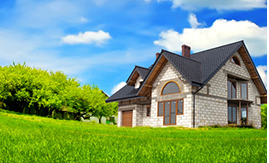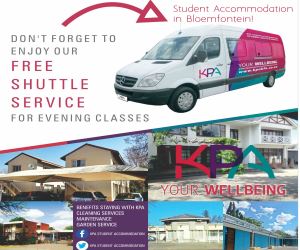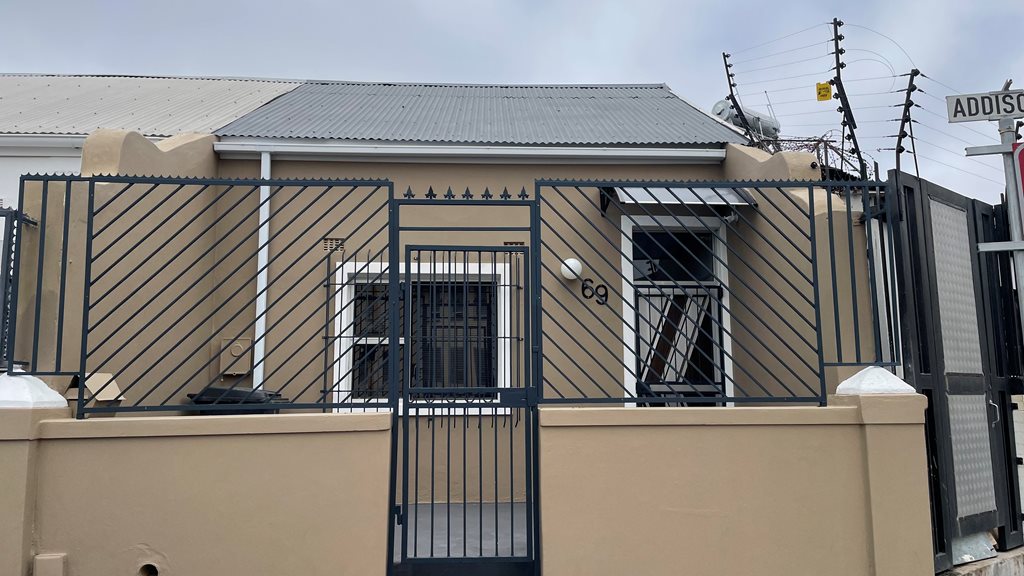Off-Campus Accommodation Student Guide

Off-Campus Accommodation Student Guide
You are about to start looking for a place of your own – a place that will be your home for the coming months or years.
This will be where you eat, sleep, study and relax. Depending on your specific wants and needs, there are many things to consider.
Your Community and Surroundings
Good Neighbour Guidelines
High numbers of our full-time undergraduates’ students live off-campus, many of them in the communities surrounding the University. In addition to student housing in these communities, a variety of people live in the area: senior citizens, families with children, and single professionals. Because University students constitute an important segment of the population in the surrounding area, the impact of students’ conduct in the community is of major concern.
As far as the other community members are concerned, students represent the University, even when they are off-campus. We ask students to be considerate of their neighbors, especially keeping in mind that students’ schedules may differ considerably from other residents’ schedules. Also, please be aware of community issues such as noise, parking, waste management, property upkeep, and alcoholic usage.
Participate in positive activities to make your institution, your community, and the world a better place.
Take responsibility for what goes on around you.
Participate in community service.
Help take care of the environment.
Be a good neighbor.
Treat every person with respect and dignity.
Follow the rules of your landlord, your institution, and your society.
Investing in your Community
Keep your apartment, home, and property clean at all times. Trash attracts bugs and/or animals and detracts from the appearance of the community. Your neighbors have chosen this community as their home and take pride in it. Keep parked cars to a minimum and be aware of the ability of others to get in and out of their driveways without their view being obstructed. Cars should be parked in the street or in your driveway – not on the lawn. Watch your noise levels. Families with children need a quiet environment in order to keep to bedtime routines. Loud music or cars, shouting individuals, or increased traffic will disrupt your neighbors.
Take responsibility for your guests. Instruct them on the need for respect of your neighbor’s property and desired environment. Get involved with your block or neighborhood association. Be an active part of the decision-making in your community.
Parties and Noise
One of the biggest issues that the community members have is partying and/or noise. It is usually a neighbor who calls when a party gets too loud, moves outside, or becomes too crowded.
Here are some suggestions if you are planning a social event:
Talk to your neighbors and landlord before planning a party. Give out your phone number so they can call you if it gets too loud.
Do not allow outsiders on the premises and limit guests to the minimum, if you invite guests you need permission from your agent
Make sure anyone consuming alcohol is 18 and older.
From time to time, go outside and check on the noise level.
Discourage guests from wandering around your home or neighborhood.
Clean up any mess from your party as soon as possible.
Keep all gates locked, as uninvited or unwanted guests might make their appearance.
Before You Rent
Questions to Consider
Always inspect the property before signing a lease or make any commitments
-What kind of rental unit do you want to live in?
Apartment complex (a one, two, or three-bedroom apartment);
Converted apartment in a private home;
Room in a private home;
Entire house.
-What are your transportation needs?
Walking distance;
On a bus route or taxi route;
Close to work or shopping;
Parking.
-What are your privacy needs?
Private bedroom;
Share a room;
Share a bathroom.
-What can you afford?
One-bedroom apartments tend to be the most expensive.
The closer the rental to campus, the more expensive the rent is likely to be.
Calculate transportation costs when determining a budget.
-What about furniture?
Most student accommodation has the necessary furniture such as:
Bed;
Desk;
Chair;
Fridge
Microwave (in some accommodations).
Stove
Washing machine
0What are your security requirements?
What times are your classes (day/night)?
Is the route you have to walk between campus and your commune safe?
Is there a fence?
Are there security gates?
Are there burglar bars?
Things To Remember After Moving In
Complete a thorough inventory of your apartment/room.
Give a copy of the inspection form to your landlord and keep a copy for your files.
It is important to communicate with the landlord. Keep the lines of communication open.
Remember to respect each other’s privacy.
-Roommate and Housemate Relationships suggestions
It is important to develop a roommate “Bill of Rights”: you, your roommate and your housemates need:
To read and study undisturbed in your rooms;
To sleep without interference from roommates;
To respect each other’s personal property;
To maintain a clean living environment;
To allow guests to be there, as long as they respect the rights of others;
To feel free from physical and emotional harm;
Tenant Tips
Always get a written receipt from when you pay rent or a deposit.
If you have a written lease, find out your rights and responsibilities.
If something needs to be fixed, be sure of who will pay for it, because you may have to fix it or pay for it.
Give written notice of what needs to be repaired and wait a reasonable amount of time for a response.
.Keep Your Safety in Mind
Keep all doors and windows locked.
Never let strangers into your home without proper identification, including maintenance, service or garden- and pool service.
Do not panic if your home has been entered. Do not go into the unit. Contact the SAP.
Report to your landlord as soon as possible.
Make sure all entranceways and stairwells in your house or apartment are well-lit.
Do not automatically open the door when someone knocks. Ask who it is; if you have questions about the response, do not hesitate to keep the door locked.
Be sure that your alarm system (if applicable) is working; check the batteries on a monthly basis.
Identify cleaning staff, maintenance, pool services, and garden service do not allow any unknown or unidentified people claiming to do any work on the premises as this is a tactic for criminals to enter your commune.
Tips on how to save electricity.
Switch off lights that are unnecessarily on (e.g. outside lights).
Switch off all electrical appliances when leaving your room or any other room in the commune.
Limit heaters to a minimum during winter.
DO NOT LEAVE YOUR HEATER ON WHEN LEAVING YOUR ROOM.
DO NOT USE APPLIANCES LIKE STOVES AND OVENS AS A HEATER.
Do not use heaters during peak hours of the day (e.g. 7-9 am and 4-8 pm).
Bar heaters and oil heaters are heavy on electricity and should not be used, when purchasing a heater ask your supplier to advise you on cost-effective heaters.
Limit shower/bath time to 10 minutes per person – remember your housemates also need a hot shower.
Points To Remember
We want you to have a good experience at your student home. In order to ensure this, it will be helpful if you remember these points:
You have the ability to portray a positive image for yourself and your institution.
You are expected to act as a responsible and contributing member of your community.
Some of your neighbors could be key people in the fields you wish to enter. Poor relations with them could hamper an otherwise positive connection with your future.:
Property owners could face sanctions related to your behavior and this could lead to the loss of accommodation for you.
If you lose a positive reference from your landlord, a search for other off-campus housing options could be difficult.
Please create the most positive options for yourself and your neighbors.
House Rules and Regulations (each owner or house will have their own rules)
The rules of conduct shall be binding on the lessee/occupants as well as on any visitor and worker and forms part of your contract.
This means that steps must be taken against a lessee/occupant not complying with the rules.
It is therefore important that you, as a lessee/occupant, are well conversant with the provisions of the rules.
All lessee’s/occupants is jointly and severally responsible for the property.
The following rules are pertinently brought to your attention:
Animals, Reptiles and Birds
A Lessee/occupant of the property/section shall not keep any animals unless an arrangement was made.
Refuse Disposal
A lessee/occupant of a section shall maintain in hygienic and dry conditions and use the provided receptacle for refuse within his section.
Ensure that refuse is placed securely in such receptacle, or in the case of tins or other containers, that such tins or containers are completely drained.
No building or gardens refuse allowed in receptacle.
No refuse may be left on any portion of the common property whether in a container or not.
Vehicles
Lessees/occupants of sections shall ensure that their vehicles and the vehicles of their visitors and guests do not drip oil or brake fluid on to the common property or in any way deface the common property.
Vehicles of the lessee or their guests may only be parked in areas specifically designated for this purpose.
No vehicles may be parked on the grassy areas
No owner/occupant shall be permitted to dismantle or affect major repairs to any vehicle.
Vehicles may not travel in excess of 10km/h on any portion of the common property. Visitors not complying may be requested to park outside property boundaries.
The owner may cause the vehicle be removed or towed away, at the risk and expense of the owner of the vehicle, any vehicle parked, standing or abandoned on the common property.
Damage, Alterations, or Additions to the Common Property
A Lessee/occupant of a section shall not mark, paint, drive nails or screws to there like into, or otherwise damage, or alter, any part of the common property without first obtaining the written consent of the owner.
16.4.2 Notwithstanding sub-rule (1), an owner or person authorised by him may install:
Any locking device, safety gate, burglar bars or other safety device for protection of this section; or
Any screen or other device to prevent the entry of animals or insects provided that the owner have first approved in writing the nature and design of the device and the manner of its installation.
A lessee/occupant shall not construct or place any structure or building on his exclusive use area or common property without the prior written consent of the owner, and which will affect the scale of insurance premium, paid by the owner. Alterations and or additions for the lessees/occupant account/insurance.
The lessee shall not use his section, exclusive use area or any part of the common property, or permit it to be used, in such a manner or for such purpose as shall be injurious to the reputation of the property.
Signs and Notices
No occupant of a section, used for residential purposes, shall place any sign, notice, billboard or advertisement of any kind whatsoever on any part of the common property or of a section, as to be visible from outside the section, without the written consent of the owner first having being obtained.
Storage of Inflammatory Material and other Dangerous Acts
An occupant shall not store any material, or do or permit or allow to be done, any dangerous act in the buildings or on the common property which will or may increase the rate of the premium payable by the owner on any insurance policy.
The lessee is responsible for their visitor’s actions. Any damages caused by such persons, shall be for the lessee’s account. No hobby or any other activity on the common property which causes a nuisance for other tenants.
No fireworks, crackers, rocket, firearms, airguns or any other instruments to be discharged on the property.
More News

Reading that boring Lease Agreement is very important!
Studentnouna person who is studying at a university or other place of higher education Being a student it is your responsibility your given right to learn to have
Read More
Need to list your property for Student Accommodation?
Let Student Accommodation list your property for students looking for accommodation We make it easy to fill your property and ensure your property is let most of
Read More



About Us
You are about to start looking for a place of your own – a place that will be your home for the coming months or years. This will be where you eat, sleep, study and relax. Depending on your specific wants and needs, there are many things to consider. Good luck in finding your new home!
Latest News
Properties
Contact Us
245 President Paul Kruger Avenue, Universitas,
BLOEMFONTEIN, 9301
Phone: 061 330 2785







